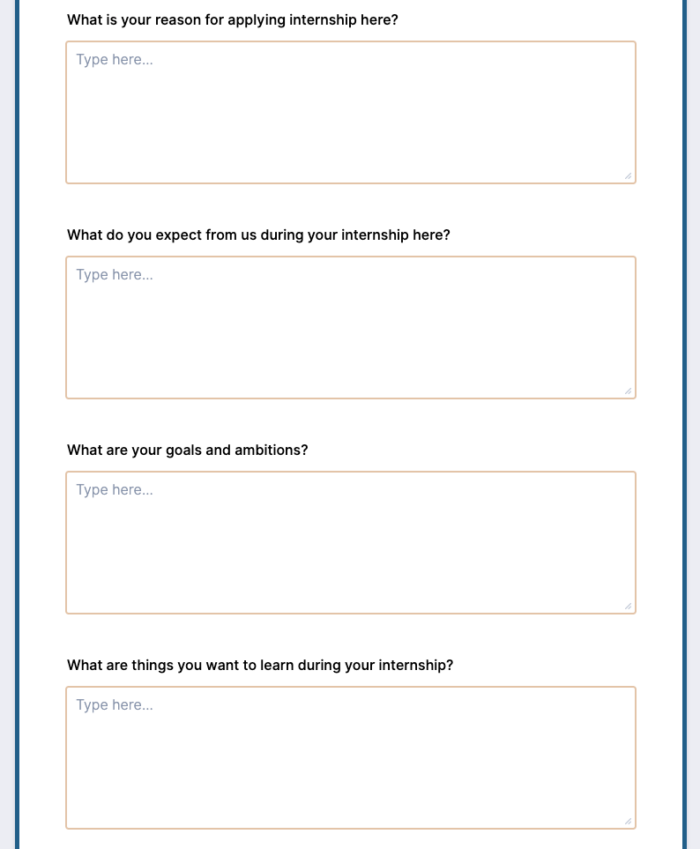Successful internship programs strive to be an equitable win-win for graduates seeking early career opportunities and growing companies in need of fresh talent.
The intern gets a valuable opportunity to demonstrate the hard skills they bring from their studies and refine the soft skills expected in a professional work environment. The company learns whether the intern is a good fit and, if so, where they could contribute as an employee following graduation.
Recruiting and hiring interns is like the general recruitment process, but there are significant differences. After all, you’ll be hiring interns who may have to relocate for a temporary position. The competition will be stiff for the best and brightest, so be prepared to help candidates with the logistics that come with accepting your offer.
Here are some tips for successfully recruiting the best qualified interns and transitioning them to high-value, full-time employees.
- Set clear goals and expectations for your internship program
- Know what you’re looking for from an intern
- Spread the word
- Carefully vet candidates
- Communicate throughout the process
Set clear goals and expectations for your internship program
The most talented prospective interns will only consider programs known for providing meaningful work experience that helps them get a job following graduation.
Begin with the basics. How long is the internship? Which departments are seeking interns and for what tasks? What skills do interns need to have, and what skills can they expect to learn in the course of the internship?
Don’t limit your recruiting to candidates with trust funds. Early in the process, tell your top prospects what you’ll pay and what assistance you offer for relocation and housing. If you take this approach, you’ll soon earn a reputation that attracts top talent.
The strongest internship candidates are those who want serious work that will have measurable results they can point to. The days of interns fetching coffee and making copies are long over, or should be. An editorial intern who spends the duration of the program scanning receipts into the expense management system isn’t learning how a publication operates and won’t have any published work to show prospective employers.
The worst internship programs are the ones that mistake interns for temps, simply paying them to do the work nobody on staff wants to do. They stay busy but never have an opportunity to contribute in a professional way. Programs like these can never attract the talent they’re intended to recruit.
Know what you’re looking for from an intern
Consult with each department before establishing your internship program. Different departments are likely to seek a different mix of hard and soft skills, so carefully consider what your ideal candidate looks like.
Are you confident the intern will become proficient in the skills you want in an entry-level employee? The best internship programs yield a steady stream of highly productive new employees who already know how to contribute to the team because they’re proven and welcome teammates.
Spread the word
Take advantage of all the channels talented college students use to find promising internship opportunities. Internships.com is a top site, but don’t overlook college job boards and opportunities to meet recruits at college career fairs. Prospective interns are likely active on LinkedIn, Indeed, and Glassdoor, even though these aren’t traditional internship posting sites.
Your employees are potentially the most valuable resource for finding interns. The colleges attended by your most promising new hires and your most reliable, longest serving employees are both sensible places to look for more good prospects.
A growing company needs a real recruiting strategy for interns.
Carefully vet candidates
Never think of interns as temps you hire to clean up some backlog, then forget about. The best interns are starting careers, not just working a summer job. Give their resumes and cover letters the same careful consideration you give to a full-time hire.
Your top recruiting goal is to find interns who are a good fit for your organization. Your top program goal is transitioning interns into teammates. Pay attention to how candidates present themselves at the first meeting. You don’t want people who will simply cash their checks and count the days until they return to campus.
Treat the interview process as though you’re hiring a full-time employee, because that’s what good interns become. Take the time to recruit and hire an intern you’re confident will succeed.
As much as possible, meet candidates face to face. Be on the lookout for red flags. Check references, including for those candidates who only list odd jobs or low-level retail positions. Someone working a humble but honest job to pay for their education is worth considering as an intern.
Communicate throughout the process
Internship candidates, no less than full-time recruits, will want to know where they stand throughout the hiring process. Give them reliable time lines and contact them promptly when you’ve made a decision. If you decide to pass, tell them respectfully and quickly so they don’t miss out on another opportunity. Top candidates are likely being considered by more than one company.
Recruiting and hiring top interns is an important component of the search for full-time employees who are capable of growing the company. With careful planning and outreach, you’ll attract the right interns and expand your pool of quality candidates for full-time positions.



































Send Comment: